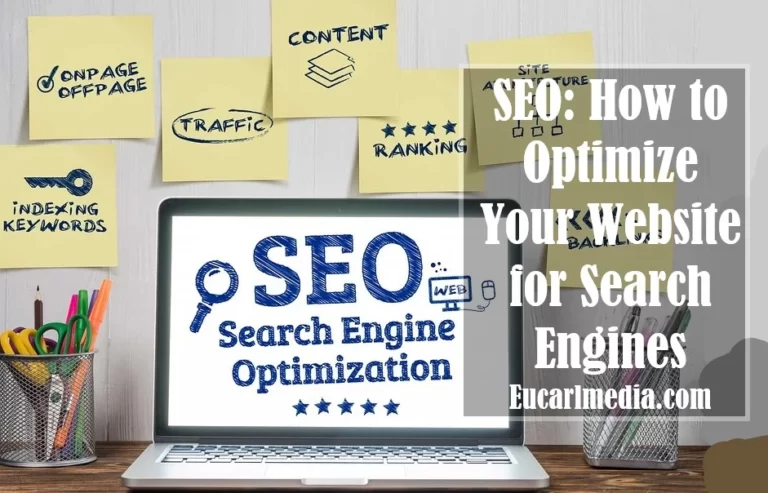Metadata Meaning: Discover How It Helps SEO
It is essential for any person who creates content or works in online marketing to have a solid understanding of both the definition of metadata and how it may improve search engine optimization.
If you don’t use metadata effectively, there is a lower chance that your website will meet the standards set by Google, which would lead to a poor ranking for your website.
The question that arises now is, “What is metadata?” Metadata is a simple group of bits of information that are put in between your website and the search engine. That’s the simplest metadata meaning.
This metadata language is mostly read and comprehended solely by search engines. This is because most people who visit a website can’t see the metadata terms or functions that are being used on the page.
It’s really funny, isn’t it? Now that we have that out of the way, let me walk you through an example of some common SEO metadata that can always be found on every page of a website.
<title>The title tag should goes here</title>
Metadata Meaning And How Different Types Of Metadata Boost SEO
This section of this article will provide additional in-depth metadata meaning as well as how the different types of metadata work together to improve SEO performance.
In addition, we will walk you through the proper utilization of SEO metadata in the maintenance of your website. Keep in mind that paying attention to the terminology that will be used is quite important.
After reading this post, you’ll know more than the average user because you’ll understand some terms used by web developers and some terms used in search engine optimization (SEO).
Because of this, you will have a better understanding of their language and will be able to connect with them more effectively, which will provide you with professional insight on how to hire an SEO expert or possibly a web developer.
Now, let’s roll the dice and see what happens!
Meta Tags

NOTE: All meta tags are metadata, but not all metadata are meta tags. Most users do get confused here or might probably not understand this, but we will always make our readers understand it well.
If you happen to be one of our readers and devoted fans, consider yourself extremely fortunate. Cheers!
Now, let’s get down to the serious work at hand!
Now let’s talk about metadata meaning and how it relates to SEO; how does having the right code for meta tags improve SEO? The following example of a meta tag should serve as a guide for how to properly use SEO keywords in your own meta tags.
Other SEO metadata, on the other hand, looks like what was just described. Since your CMS will always keep it up to date for you, there is no need for you to waste time trying to commit this format to memory.
This is done by the Content Management System (CMS), and when you type in your content, it will automatically create the meta tags you choose in the right format as you type.
Title Tags
Is this piece of metadata the most significant, or does it rank highly among the most important? Just bear in mind that this is highly important in the overall SEO metadata usage.
For example, if you look at the HTML code for this particular blog post, you’ll notice that the title is going to be shown in the following format: Metadata Meaning: Discover How It Helps SEO
The next important question based on metadata meaning is: what’s the importance of these meta tags, and how do they affect the ranking of your website when inscribed correctly?
The answer to this question is that the title tag is extremely significant because it is the very first thing that each user will see in the search engine results pages (SERPs) to determine whether or not they will click on the content.
So, a title tag that is well-written and has the right SEO metadata will get more people to click on it, which will directly increase the organic click-through rate (CTR) of that page.
Meta Description Tags
The meaning of this particular piece of metadata is most frequently understood by search engines to be “descriptive black text.” This function contributes to an increase in the number of clicks made by users on search results.
Within a maximum of 11 words, the meta description tags summarise the info contained on the page. There is a character count cap of 160 characters on this field. The remaining text will not be displayed once that limit has been reached.
But if you leave the meta description tag blank, Google will figure out what the most significant section of your content is and convert that to the meta description automatically.
Nofollow Attributes
External links or outbound links are links that have the Nofollow attribute. These links redirect your visitors away from your site and to another, where they can read additional useful information related to yours.
The metadata meaning of these links is very helpful for your general search engine optimization because it makes it look like your content was carefully written by hand and is trustworthy.
Be aware, though, that you should avoid manipulative linking at all costs because Google will always find it and hit your page with a penalty if you do.
Because of this, you should be careful about where and how you link your content since linking to a page shows that you trust the information on that page.
But when you insert the SEO metadata of Nofollow attributes into a link, it implies that you are telling search engine bots not to follow the link connection and not to pass link equity.
Robots Meta Tag

The metadata meaning of the robot meta tag tells the search engine robots whether or not they should index the page or pass link authority through the links on the page.
When it comes to managing websites, the meta robots tag is most commonly utilized in templates. As a direct consequence of this, you could find it necessary to omit certain pages from the indexing process.
It is important to keep in mind that improper use of the robot SEO metadata could lead to a decrease in the overall effectiveness of your website’s SEO. Therefore, exercise extreme caution if you make use of this metadata.
The robot meta tags could give the search engine the instruction to bypass a particular page on your website when retrieving its description from the index. This is most helpful in situations where your description is no longer accurate.
Read Also: SmallSEOTools – Quick Review And How To Use It Right
Heading Tags; H1-H6
Because heading tags are used to differentiate between the main headings and subheadings on a web page and the rest of the text on the page, they will continue to be included as part of the HTML SEO metadata.
According to a number of studies, the H2–H6 headings do not have a significant role in the ranking of a website. But here’s a surprise: search engines and the user experience both place a significant emphasis on the importance of these elements.
The structure and organization of your material should look ordered in order to draw in more readers, and the metadata meaning of your heading tags plays an important role in achieving this goal.
The way heading tags are understood by SEO metadata seems to be different from how heading tags are understood by users.
For Search Engines:
They have a propensity to read and comprehend the content that is arranged beneath the numerous heading meta tags with relative ease. Because of this, it won’t be difficult for them to crawl and index the web page.
For Users And Web Visitors:
A piece of content that has been optimized with the appropriate heading meta tags that are optimized for SEO will always make the user more interested in reading the content, which will boost your ranking.
Schema Markup
A few years ago, the Scheme Markup project was started so that webmasters could mark web pages with certain SEO information to make it easier for search engines to crawl them.
In brief, the schema markup metadata of your company’s website, online shop, E-commerce, and product prices will allow search engines to show the information on your site in SERPs.
This particular metadata meaning, in contrast to the others, is always inserted by a web developer. This is because the science behind it is typically difficult for an average person to comprehend.
Tags For Image And Alt Text Attributes

The height, width, dimensions, and size (MB OR KB) of an image are part of the metadata meaning of image tags and alt attributes. This information is sent to search engines to describe the image.
It is important to keep in mind that the image attribute is one of the most vital piece of SEO information since it will serve as a replacement for the picture in the event that it cannot be displayed while still maintaining its SEO level.
According to the study, SEO specialists usually insert their own image tags and attributes for their client websites in order to rank higher in search results. This is especially true for SEO specialists working for the greatest SEO companies in the world.
Tags and attributes for images should always be added to the images on a website, regardless of whether the images are of products, images that show text, or images of call-to-action buttons that include words.
Because of this, you should never forget to include your image attributes if you want to update the metadata meaning of the tags and keep a healthy website at the same time.
The Key Point(s) To SEO Metadata
In order to get the most out of your website, you should always make sure to add your meta tags. This is because the metadata meaning and the general impact it has on SEO are both too important to ignore.
Since they will always constitute your website’s taxonomy, certain metadata and meta tags will continue to be required components of websites. While some of the other tags might not be as important.
In spite of this, I strongly suggest that you always add them since doing so will provide you with an advantage over your rivals and lead to a higher ranking achieved organically within search engines.
You will undoubtedly rank on the first page of the search engine results pages (SERPs) if you implement all of these organic SEO strategies, in addition to the paid SEO tactics, which is the search engine marketing strategy.
Enjoy!






